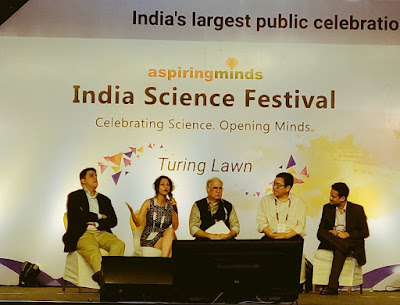Baby Mozarts within us all?
Who doesn’t love ‘Baby Mozart’? A multimedia edutainment, this musical toy lures parents with the promise of opening up their child’s latent creativity and spatial-reasoning. In fact, the popularization of music within the cognitive domain has pervaded our day-to-day lives as we see this as a means to healing and a balm for many other afflictions such as autism, Alzheimer's disease and disabilities that result from stroke. Part of this attraction is perhaps in its primal status as it serves as a listening stimulus with seemingly transformative powers. Across cultures it appears that peoples’ pleasures and sense of well-being are tied to their passion for music. Yet, can we authoritatively say that we all have musical predisposition? Are we just little Mozarts waiting for the right stimulation to tap into the well of our primitive and latent musical nature? Are we all somehow born with a beat to our steps?
Apparently, there’s no point denying it…regardless of who you are or where you are from, we are all born musical. While babies from Germany seem to cry differently from those in France, says Dr. Henkjan Honing, the KNAW-Hendrik Muller Chair of Music Cognition at the University of Amsterdam, they share the essential ability to identify music elements, even at that stage. He says that we are indeed musical animals and the more important question is rather on what makes us so. He subjects the audience to a series of sound experiments on testing our listening skills. As predicted by Dr. Honing, we lived up to the expectations of being the typical adult prototype who have somehow lost our skills to a degree and yet demonstrate some common agreements on sounds and musical tones. He exposes us to music snippets, baby cries, and even ropes in an audience member to sing the pop song “Staying Alive.” The TEDhead volunteer delivered to the delight of the audience, with the right high tempo and pitch for this song (that Dr. Honing jokes is perfect for heart patients). Dr. Honing claims that this proves his theory on how common our skills of listening are and how effortlessly we recall pitch, tonal variations and other more primal characteristics of music listening.
So, the average Joe can indeed pleasantly surprise you (including that drummer who lives above your floor) with his musical expertise. Dr. Honing remarks that these are events that should be seen as less anecdotal and more evidence for the fact that we are indeed innately oriented and attuned to music. So how controversial is this claim about believing that we share the mental script for basic appreciation of music? What happens when this claim starts to encroach on the finer acts and the high cultural realm of music performance? Will there come a day when we will also argue that we can all be Mozarts and that this music genius is but a common talent that is waiting to come through with the right stimulus?
TO VIEW THE VIDEO FOR THIS TALK, CHECK THE TEDxAMSTERDAM SITE:





Comments
Post a Comment